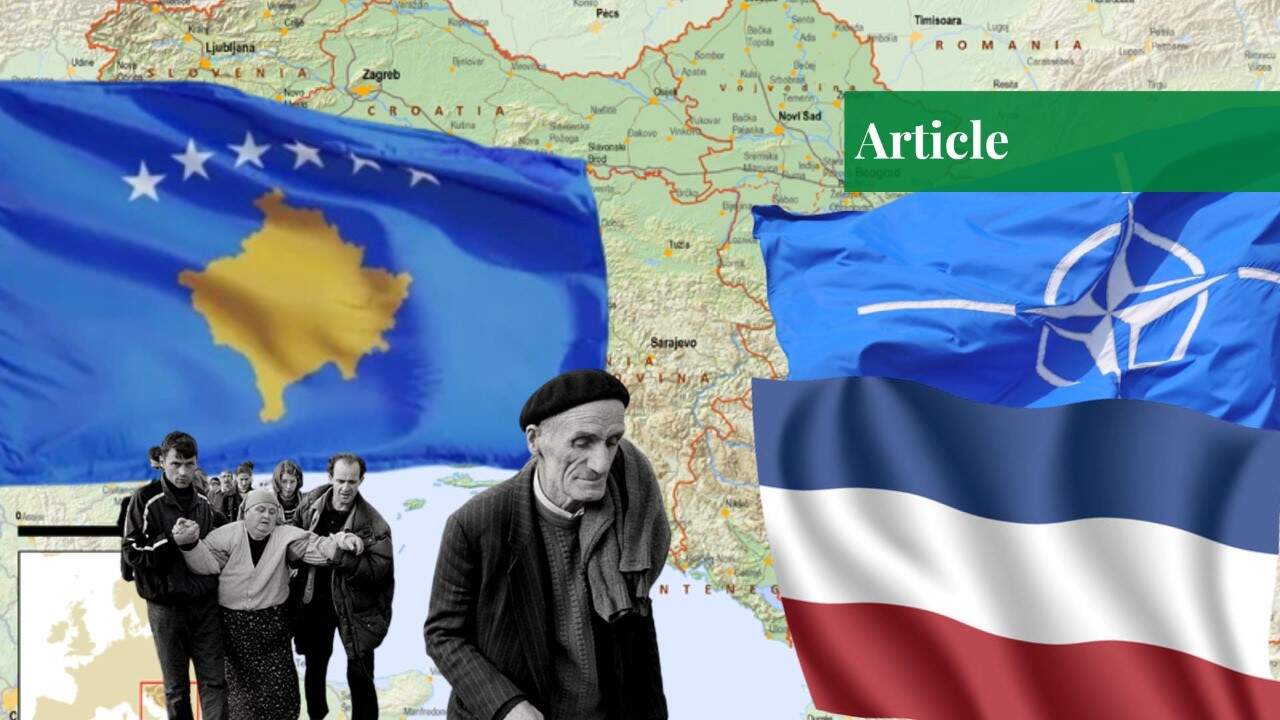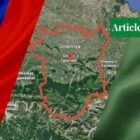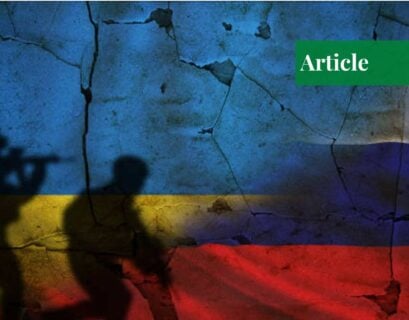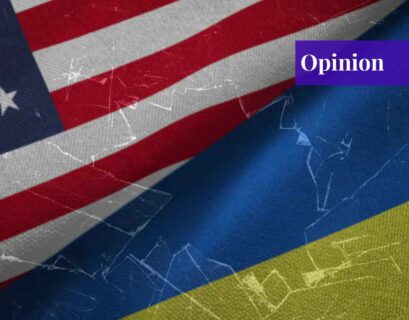Ms Abrish Nayyar is a student of BS Mass Communications at the National University of Sciences and Technology (NUST). Her subjects of interest are the history of the subcontinent, sociology, and mass media.
Background
Armed with weapons acquired in Albania, the Kosovo Liberation Army (KLA) began its attacks on Serbian police in 1996, which intensified in 1997, leading to a significant Serbian military offensive against the rebel-held Drenica region in February and March 1998. Numerous civilians were massacred, and the KLA saw a substantial rise in new recruits.
The KLA began an onslaught across Kosovo in July, taking over nearly half of the province until defeated later that summer by a Serbian counteroffensive. Many ethnic Albanians were forced from their homes by Serbian forces, who were also charged with murdering innocent people in Kosovo. 44 ethnic Albanians were slain by Serbian forces in the Kosovo village of Racak in January 1999, which resulted in international pressure that eventually led to the discussions.
After the Serbian delegation failed to ratify a pact that called for Kosovo autonomy and the deployment of NATO soldiers to execute the agreement, additional peace negotiations in Paris on March 18 came to an end. Later, the Serbian army began a second Kosovo invasion two days later.
Events
The NATO bombing in Yugoslavia started on March 24, in an attempt to convince President Milosevic to accept the terms of a deal to cease his military assault against the Kosovo Liberation Army. NATO launched its warplanes on March 24 without the support of the UN Security Council, claiming that it had to intervene to address a humanitarian disaster.
Insisting that the airstrikes were unlawful, Milosevic’s forces retaliated by attacking the Kosovo Albanians. The damages caused during these attacks were tremendous. According to The Washington Post, there was a loss of TV transmitters, railway stations, airports, drugs, cigarettes, shoes, and light aircraft factories. Additionally, it was believed that the bombing destroyed 600 kilometres of railroad and 470 kilometres of roadways, in addition to damaging 25,000 homes and apartment structures.
Simultaneously, the economy had reached a complete standstill. Thousands of factory workers lost their jobs, and schools and universities had to be closed. Of course, it is improbable in any war that humans remain unharmed. The Serbian government made an estimate of at least 2,500 fatalities and 12,500 injuries during the NATO military assault, but the precise death toll is still unknown. Human Rights Watch estimated that the bombing campaign had killed 500 or so civilians overall.
The battle was fought in a way that eliminated any prospect of NATO casualties: at first, bomber planes flew above the altitude at which Serbian anti-aircraft weapons could reach them. The height could be the reason why NATO soldiers hit people in a number of incidents.
Agreements
After the Kumanovo Agreement and UN Security Council Resolution 1244 were signed and adopted, the NATO war came to an end on June 10, 1999. This was followed by the evacuation of all Yugoslav military personnel from Kosovo and the entry of 36,000 foreign peacekeepers.
In many ways, Operation Noble Anvil was a resounding military triumph. The Kumanovo agreement’s primary goal was, presumably, to remove Yugoslav and Serbian security personnel from Kosovo. Following it, NATO troops were sent to the area, and they are still there today. However, it should be mentioned that the bombing was prohibited, considering it was carried out without the consent of the UN Security Council.
The bombardment had been “illegal but legitimate,” according to an intriguing semantic formula developed by the international panel established to investigate the operation. In October 2000, Slobodan Milosevic, who is most often blamed for the events that took place during, and leading up to the NATO bombing, was overthrown from office in Belgrade as a result of a mass uprising. His policies ensured that Serbia would be isolated from all others.
After a decade of governance, albeit poor, he was succeeded by Vojislav Kostunica, a moderate Serbian nationalist who promised to reintegrate Serbia into Europe and the rest of the world. On March 11, 2006, Slobodan Milosevic passed away in a Dutch prison while he was on trial for crimes against humanity and genocide. The court did not render a decision because of his passing.
Consequences
Due to a series of wars and conflicts during the early 1990s, Yugoslavia was split into separate federations: Bosnia and Herzegovina, Croatia, Montenegro, North Macedonia, Serbia, and Slovenia. To this day, though it has been two decades since the operation, there is still no political settlement on Kosovo’s status despite the military, diplomatic, and financial investments made in Kosovo by Western countries.
Ironically, tensions between Serbia, the country from which Kosovo unilaterally declared independence in February 2008, and Kosovo are at an all-time high. Both parties’ interests seem to be incompatible with one another. Serbia’s principal national interest is to obstruct the international recognition of its former province, while Kosovo wants Serbia to recognise it as a state.
Following the split, a bloody series of battles known as the Yugoslav Wars occurred. The dissolution of Yugoslavia had regional effects on Europe in addition to its local and global effects because of discussions of prospective European Union integration of former Yugoslav republics.
Identity, migration, international law, and the European Union locally, regionally, and internationally have all been impacted by the breakup of Yugoslavia. The split brought ethnic identities into sharp contrast with formerly Yugoslav identities, leading people to reevaluate their sense of identity and belonging. Antagonisms increased as a result of the breakup’s ethno-politically charged nature in addition to the rethinking of identities that dominated the post-Yugoslav environment.
In the Balkans, the politicisation of ethnicities and nationalisms exacerbated the conflict by dividing the people who had once been considered to be “Yugoslavs” along new frontiers and with new citizenships. Ex-Yugoslavs migrated in large numbers from their republic of origin to the post-Yugoslav country with which they identified more strongly ethnically and nationally, or where they felt safer as a result of the breakup, which led to socioeconomic issues as well.
At the international level, the dissolution also paved the way for the establishment of temporary tribunals and alternative legal systems. For instance, the first of its type, the International Criminal Tribunal for Former Yugoslavia, just finished its work. The tribunal’s temporary status and global outlook were intended to discourage anyone from breaking international law, to encourage revealing the truth, and to establish a precedent that the world community would not remain silent in the face of atrocities.
If you want to submit your articles and/or research papers, please check the Submissions page.
The views and opinions expressed in this article/paper are the author’s own and do not necessarily reflect the editorial position of Paradigm Shift.


















